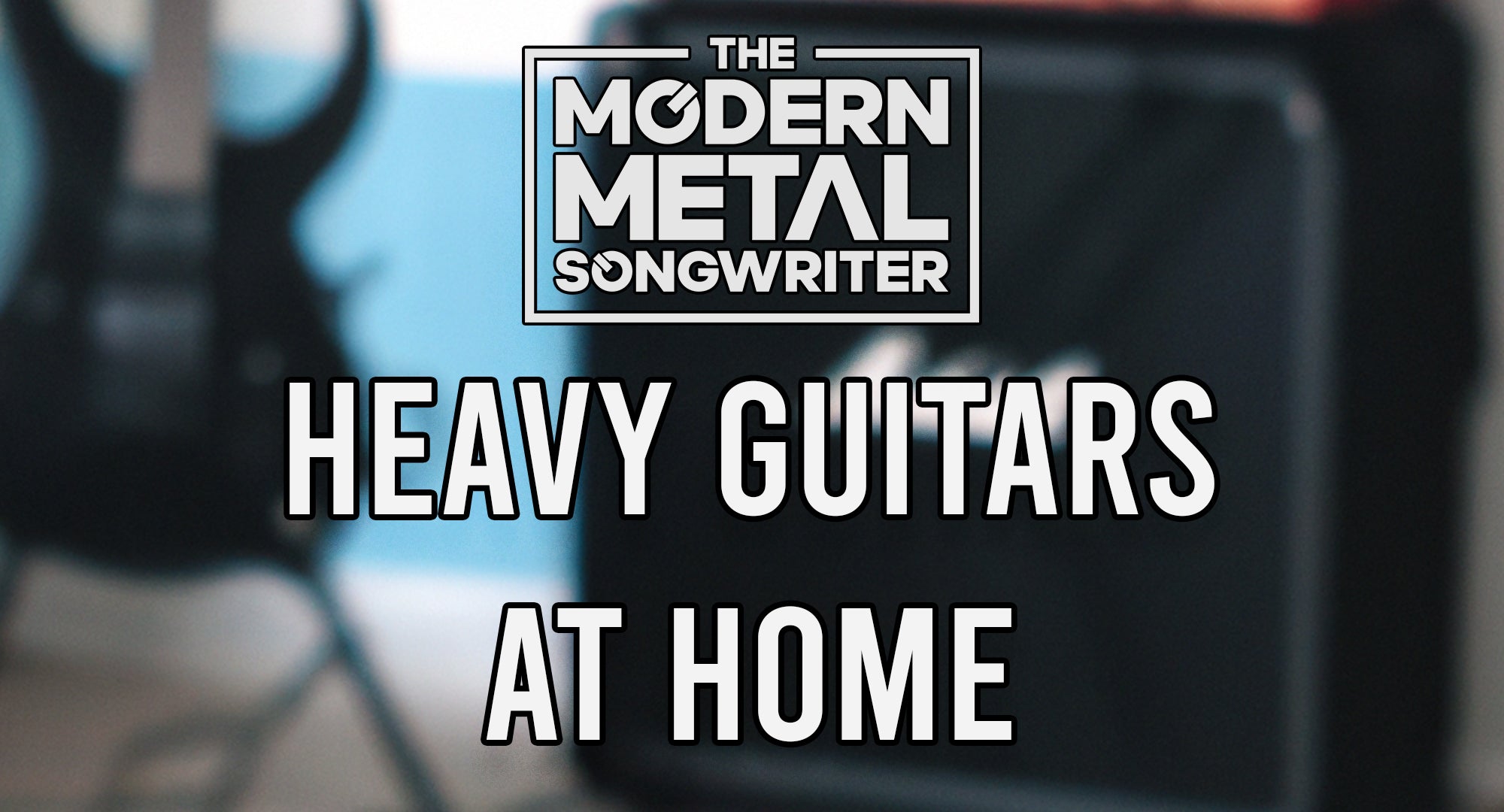As a rock or metal musician or songwriter, you know that sound quality is paramount in this genre, especially if you record at home and send your tracks out for mixing: everything starts with you.
Whether you're recording a blistering guitar riff or a guttural scream, you want your music to sound as powerful and pristine as possible. That's where an audio interface comes into play. In this article, we'll discuss what an audio interface is, why you need one for modern metal music production, and how to choose the best one.
If you're looking to record guitar or bass, be sure to check out our FREE guide to properly recording your own metal guitars at home start to finish HERE.

What Is an Audio Interface?
An audio interface is the piece of hardware that lets you connect microphones, musical instruments, and other audio gear to your computer for recording and playback. It acts as a bridge between the analog and digital worlds, converting the sound from your instruments or microphones into a digital format that your computer can understand. They come in many shapes and sizes, and formats but in the end, they’re just a piece of equipment that takes lets you get your instruments, microphones etc recorded into your computer.

Why Do You Need an Audio Interface for Metal Music Production?
Using an audio interface has several benefits that make it essential for metal music production. Here are a few reasons why:
- Improved sound quality: An audio interface produces a clearer and more accurate sound than your computer's built-in sound card because it includes better converters and preamps.
- Lower latency: Latency is the delay between when you play or sing and when you hear the recorded sound. An audio interface can minimize latency and make recording and monitoring more comfortable and natural. There aren’t many things more distracting than when performing and dealing with noticeable latency.
- More inputs and outputs: An audio interface typically has multiple inputs and outputs, allowing you to connect several microphones or instruments simultaneously and control their levels separately. This is important for recording multiple sources like multiple instruments, or a single drum-kit.
Can You Use an Amp Instead of an Audio Interface for Recording?
Some people might think that using an amp is a viable alternative to an audio interface for recording metal music. While it is possible to record using some amp features depending on the model, there are several reasons why an audio interface is often a better choice:
- Sound quality: An audio interface has higher-quality converters and preamps than most amp modeler hardware, resulting in a cleaner and more accurate sound - similar to how interfaces are better than the sound card on your computer. Even the DI on certain hardware options are several steps below what some cheap interface solutions offer, mostly due to the fact this is not what the amp maker focused on quality wise.
- Flexibility: An audio interface lets you record and process your sound digitally, giving you more control over the final product. If you record a direct input (DI) of your guitar, you can change the tone later with an amp sim such as our amp Clairvoyant | Amp Suite and even re-amp the signal back through your amp if you want to capture the amped sound in your room. This is huge when writing your music, because it allows for complete flexibility.
- Compatibility: An audio interface is designed to work seamlessly with recording software, while an amp may require additional equipment (such as adapters) or modifications to achieve the same result. Many modern amp modelers can be used for recording such as the Quad Cortex, Kemper, or Helix and this is because they’re digital products that are designed to be used with software, whereas many amplifiers may have the feature but that’s not really what they’re made to do. So keep this in mind if you DO go the amp route. We highly recommend getting a dedicated interface for 90% of scenarios in recording though, as it's a small price to pay for the flexibility, and quality you gain.

How to Choose the Best Audio Interface for Metal Music Production
When choosing an audio interface for metal music production, there are several factors to consider. Here are a few key things to keep in mind:
- Number of inputs and outputs: Consider how many microphones or instruments you need to connect simultaneously and ensure the interface has enough inputs and outputs to accommodate them. You may only need one if you’re a bedroom guitarist that programs drums and does everything by yourself. Whereas if you're planning to record drums I recommend at least 8-12 inputs to capture the a 4-5 piece kit correctly for the genre.
- Audio quality: Look for an interface with high-quality converters and preamps to ensure the best possible sound. In general, the cheaper the interface - the worse the converters are. However, when just starting out, this isn’t something most beginners will even hear. If you’re just trying to write songs, the difference in converters shouldn’t be a priority, and you should focus on getting the best sounding preamps and usability, especially if you are just sending files out to a mixing engineer in the end.
- Compatibility: Make sure the interface is compatible with your recording software and operating system. Ex: The UAD Apollo Twin X has to have Thunderbolt 3 support and will not work if your computer does not have Thunderbolt 3, which looks like USB-C but is actually different. Also, be sure to research what interfaces work best with your OS. Windows particularly is a trickier OS to get working with certain interfaces, where with Mac, most seem to be plug and play.
- Budget: Audio interfaces range in price from a few hundred to several thousand dollars on the high end. Consider your budget and choose the best interface that you can afford. Many people start off with the Focusrite Scarlet Solo interface because it’s affordable and can get you going while being compatible with virtually all computers, although in terms of the best quality possible for you recordings, we have some recommendations below that we feel really will outperform the scarlet at 3 tiers of budget! Keep in mind, you may need more/less inputs and outputs than these recommendations, but use them as a starting spot for your search!
Here are a few recommended audio interfaces for metal music production:
- Audient ID4: This interface has 1 input and is a great starter option for most guitarists looking to write demos. If you're looking for two inouts, check out the big brother Audient ID14 as both are loaded with the same preamps that come in their large recording consoles and sound fantastic. We highly recommend the Audient line (especially ID14 and above) because of the fact they allow for using ADAT to connect more inputs easily, and allows you to upgrade your recording setup overtime, in the case you do decide you need enough inputs for drums down the line. Even the ID14 can be upgrade to 10 inputs, which is more than enough for a starter drum rig.
- Universal Audio Volt 476P: This one is a great option for the home recording band who is recording a mix of instruments, but still not looking to do any drum recording. This one is special because it comes built in with an 1176 compressor built in to the preamps that you can use to easily level out your vocals, or even bass guitar into your DAW and introduce some outboard compression into your sound, without making a huge investment into outboard gear, and all the time and complexity that comes with that.
- Universal Audio Apollo Twin X: This interface has two high-quality mic preamps, a built-in DSP for processing, and excellent sound quality. UAD’s onboard DSP processing allows for virtually zero latency and is especially great for recording vocals. The huge benefit here for the cost is the onboard DSP.
Conclusion
An audio interface is a crucial piece of gear if you're serious about making metal music because it may enhance sound quality, lower latency, and give you more flexibility and control over your recordings. By choosing the right interface for your needs and budget, you can take your metal music production to the next level!
Check out our free guide to recording amazing metal guitars here
Happy Songwriting!



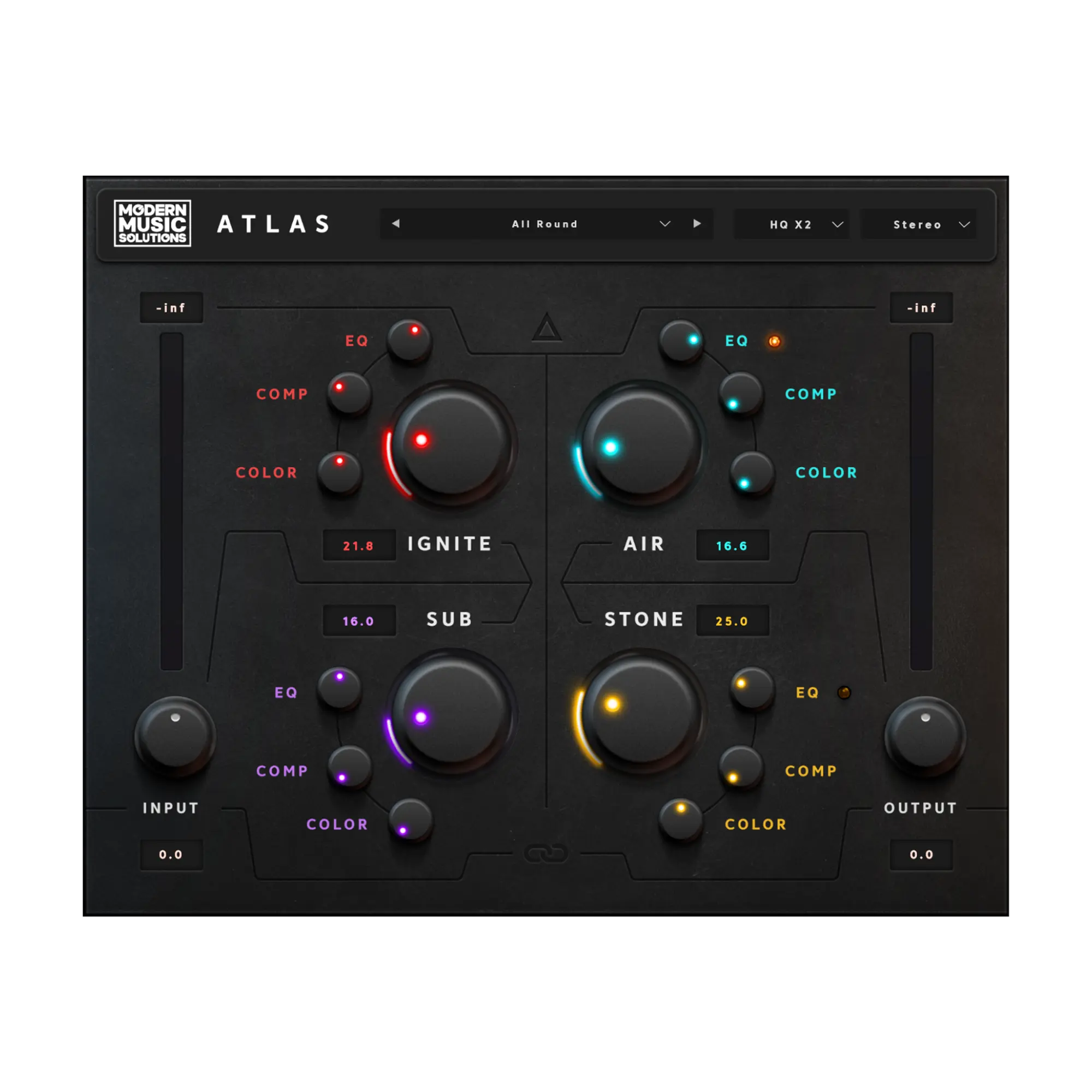
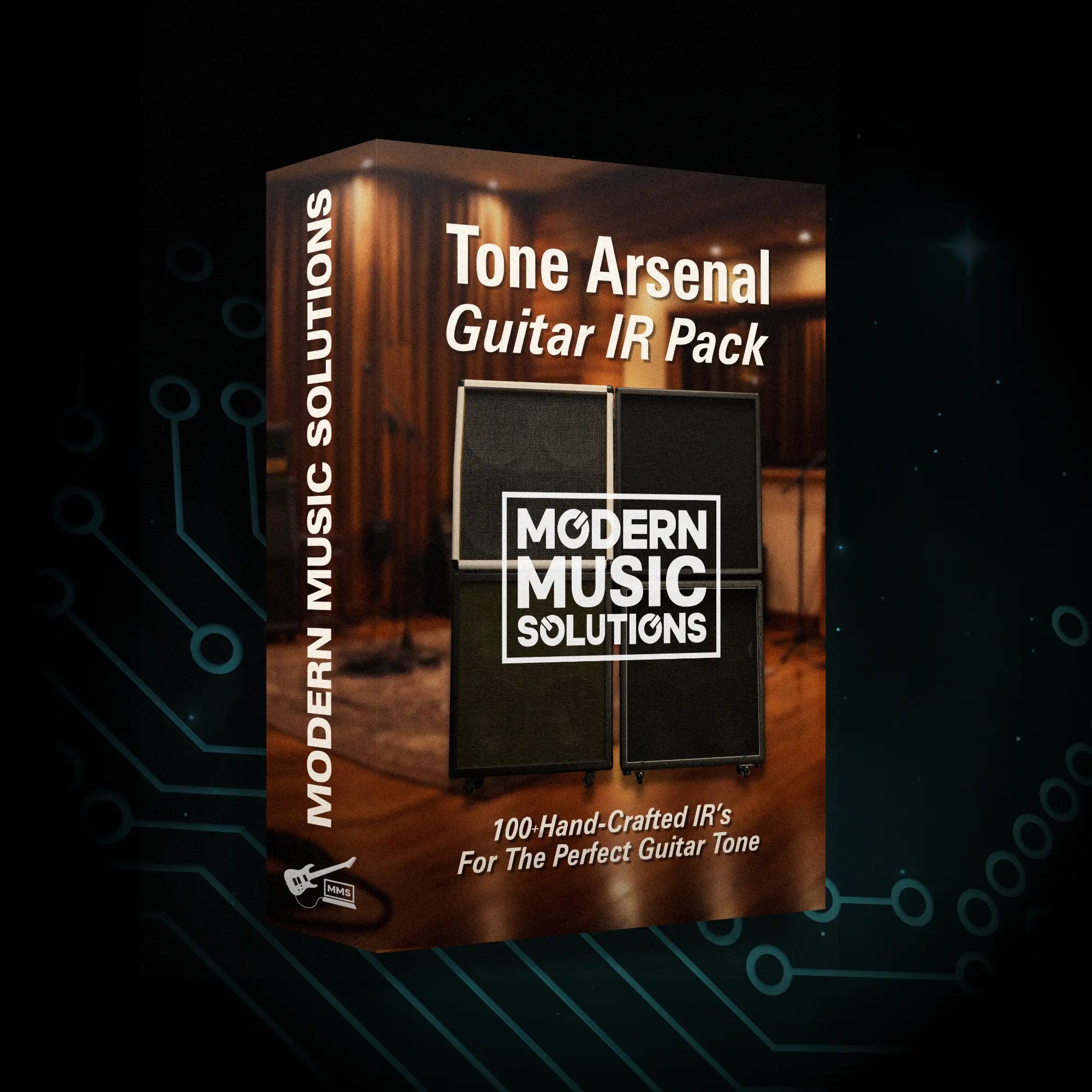
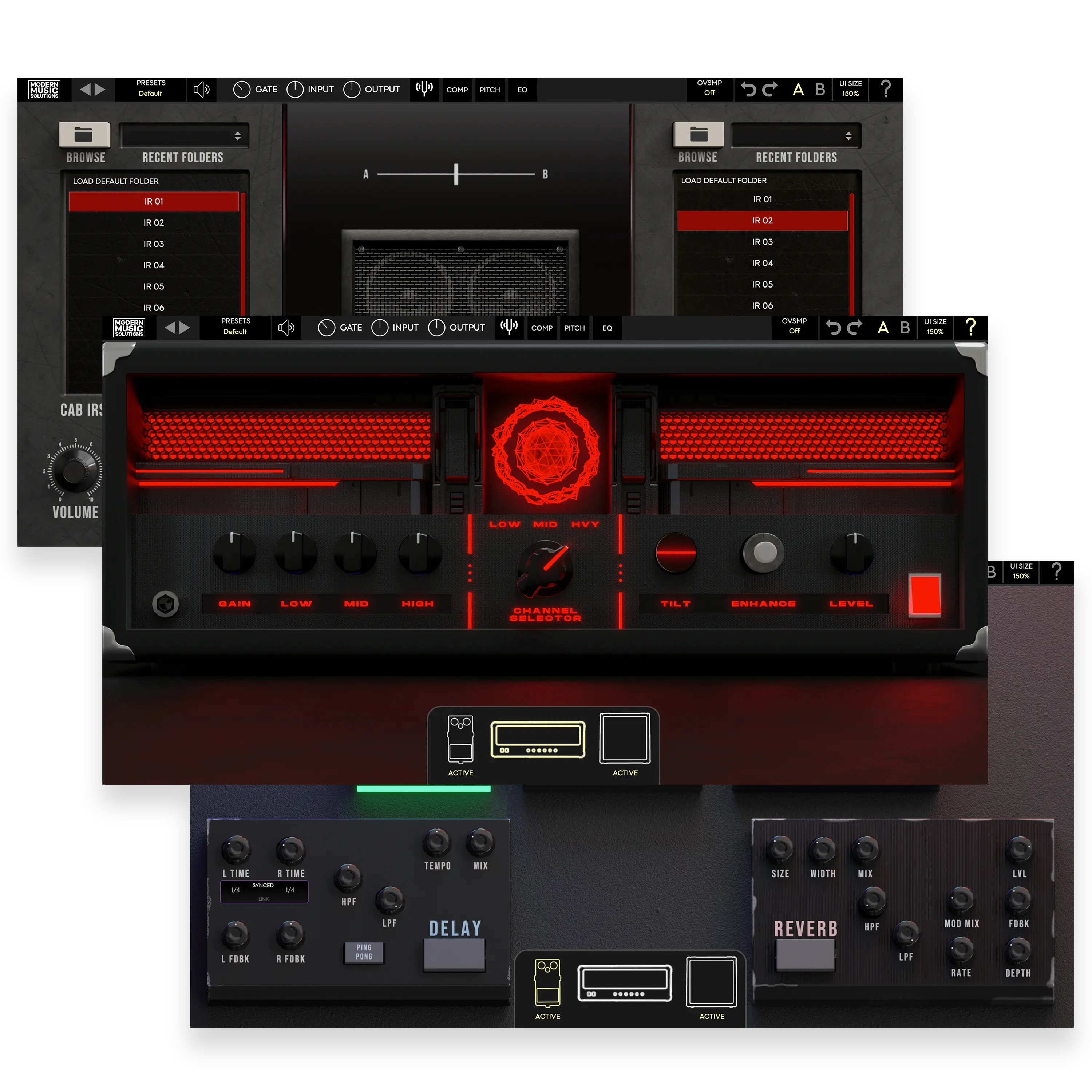

![Understanding Impulse Responses and How They Work For Your Guitar Tone [FREE IR's Included] ModernMetalSongwriter graphic](http://modernmusicsolutions.com/cdn/shop/articles/Understanding-Impulse-Responses-and-How-They-Work-For-Your-Guitar-Tone-_FREE-IR_s-Included_-ModernMetalSongwriter-17862726.jpg?v=1697220859&width=2000)
